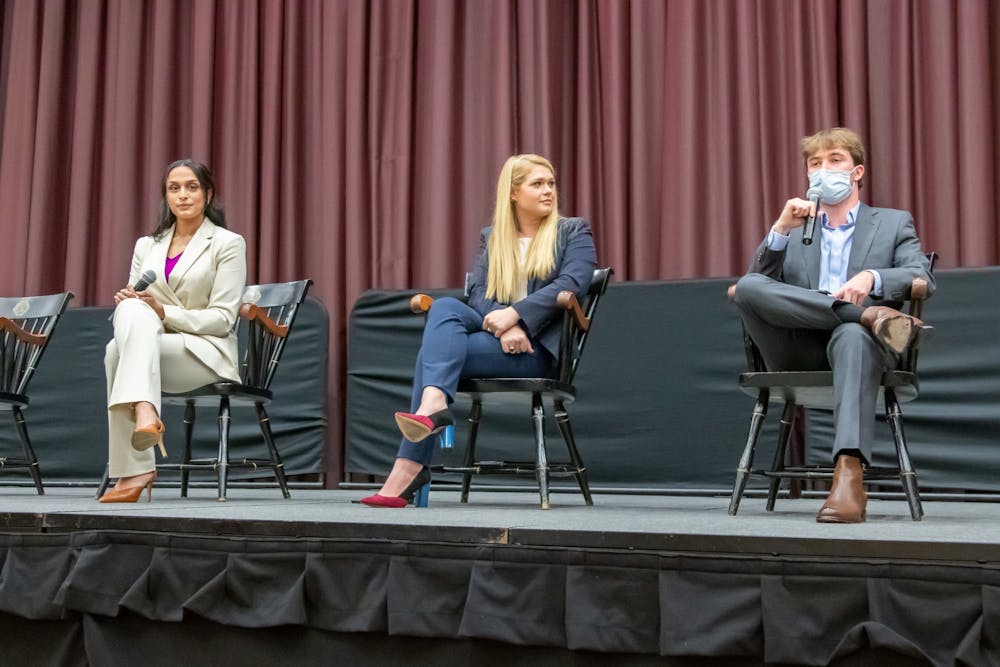Throughout Tuesday’s Student Government Executive Candidate Debate, candidates constantly referred to themselves as the student body’s voice. The problem with that idea is the fact that students already have their own voices. What they need is the power to make change regardless of the administration's wishes, something that Student Government can't provide.
Over the past few years, students have constantly spoken out about the issues facing USC and the student body without the “help” of the student government.
Take, for example, the students fighting against sexual harassment on campus or the NAACP’s Aim to Rename campaign. These groups were formed by students to voice the complaints of students and even if they have not been completely successful, they certainly attracted attention, awareness and concessions.
Of course, this year's crop of candidates seem to want to change that and build connections between the student body administration, university administration and students.
For example, student body presidential candidate Reedy Newton spoke about holding “presidential office hours” with university President-elect Michael Amiridis to hear student complaints, and student body vice presidential candidate Faith Gravely mentioned holding similar lunches in the style of former university President Robert Caslen (an interesting source for inspiration).
Student body presidential candidate Nicholas Marzullo said he would “voice the opinions of the general student body,” a pledge echoed by Newton, who said she would be “the voice for every Gamecock in this room and on this campus.”
These promises are based on the idea that the thing stopping students from making change is that they don’t have a voice, but that’s not the case. What’s stopping us from making change is that we don’t have any power.
No matter how much student government amplifies the rest of the student body’s voice, it wouldn’t change the fact that students have no structural power within the administration or the board of trustees.
Granted, student body presidential candidate Gurujjal Roopra said she hoped to work with Amiridis to get a student vote on the board of trustees. Such a change would certainly help, though it seems unlikely that a single vote on a 22-member board would make much difference. For example, the Amiridis election was unanimous.
This focus on giving students a “voice” seems to stem from the fact that student government, even the student body president, effectively has no formal power over contentious issues like building names or parking availability.
This powerlessness means that in order to appeal to student voters and speak about current issues on campus, candidates must resort to vague but positive-sounding cliches like being “the voice for every Gamecock.”
Marzullo provided a moment of transparency when he spoke about his lack of political ambitions leaving him free to take on the administration or the General Assembly.
“I'm not afraid to, you know, really go at the people in the position who make these decisions,” Marzullo said.
If Student Government wants to really make a difference in the important issues being debated on campus, then they need to take Marzullo’s attitude and aggressively go after the people who hold power on campus and in the state.
Giving students a voice is not enough. Students already use their voices, it’s just that the administration doesn’t listen, and they’re not going to listen anymore if students are routed through the student body president’s office.
Ultimately, change comes from students forcing the administration into a place where they have no option but to concede to the students’ demands. It does not come from legislation passed by a few people elected by a declining amount of students.

